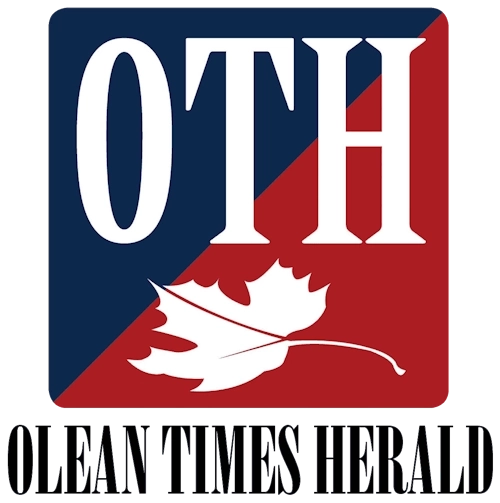Readers’ Turn to Write: Glow up, Appalachia: Reflections on leadership, racism and responsibility
Editor’s Note: The following is an adaptation of a blog posted by Fileve T. Palmer, PhD, an artist, researcher and regional development specialist, on her website, filevetlaloc.com. She lives in Great Valley.
This past week, I traveled to Corning for the final session of the Appalachian Leadership Institute (ALI), part of the Appalachian Regional Commission’s mission to uplift the region socially and economically. This sixth session focused on leadership and capacity building — essential skills for those of us committed to serving Appalachia.
Corning, in New York’s Southern Tier, is a beacon of success. Known for Corning Glass, a Fortune 500 company, and cultural institutions like the Corning Museum of Glass and The Rockwell Museum, it seemed the perfect place to host our 40-member cohort. But as the saying goes, all that glitters is not gold. Our experience challenged us to confront bigotry where we least expected it.
Our cohort, representing 13 Appalachian states, had traveled since October 2024 to places like Knoxville, Tenn., Huntsville, Ala., Athens, Ga., Hagerstown, Md. and Shelbyville, Miss. In each location, we engaged in panels, workshops, field trips and team challenges — with free time to explore. Corning was no different, except in how we were received.
Appalachia is subject to stereotypes — some fair, some not — and narratives of progress or repression vary between North and South. Ironically, it was not in Alabama or Tennessee, but in New York that bigotry surfaced. As I reminded my colleagues, “The Southern Tier is not New York City.”
After our first day’s training, a group of fellows went out to socialize. Shortly before 9 p.m., one of our African American colleagues messaged: “Be careful. Just had a truck of white guys bravely shout (the N word) as we were walking to the pool hall.”
Sadly, I was not surprised. The Southern Tier is the most homogenous and outwardly conservative place I have ever lived. When I moved here, I was shocked to see Confederate flags in Allegany and Cattaraugus counties. A friend from Georgia shared my confusion, frustrated by locals who insisted that the flag symbolized “heritage, not hate.” A transplant from Mississippi once remarked that the South won by moving north — a sentiment echoed by “All Lives Matter” supporters at the time.
A truckload of men shouting slurs at a well-dressed Black man and his white colleagues in broad daylight isn’t what many imagine when they think of New York. Yet, it happened. The hatred wasn’t just directed at our friend — it disrespected them all.
The next day, we came together to process the incident. Our colleague from South Carolina, through tears, spoke of his sorrow — but also his gratitude that it happened to him and not someone more vulnerable. His resilience turned the moment into a lesson: to have honest conversations about racism, hate, and intolerance across Appalachia. He asked: as leaders, what will we do?
Some fellows had never faced these conversations before, shielded by the privilege of homogeneity. One mentioned that his community is 99% white and lacks exposure to diversity. But I challenged this as an excuse. The pandemic showed us how technology bridges gaps. As leaders, we have the tools, networks, and responsibility to bring diversity into our classrooms, meetings, and communities. I shared how I invite colleagues, family and advocates from around the world into my students’ lives via Zoom. Where there is a will, there is a way.
Racism is not a Black problem; it is an American problem. All of us can fall into the trap of dividing the world into “us” and “them.” We must tear those barriers down. Healing, too, must begin within.
Activist Xavier Ramey reminds us:
“Have you yet worked out your hurt? Because until you work out your hurt, you’re not going to be able to successfully embody this in a way that actually restores the world. You’re just going to declare what you want and say who is wrong.”
True leadership arises from a healed, embodied state. Without that, our efforts risk being mere declarations rather than invitations to change. We cannot avoid the places where harm occurs. We must enter them with strategy, awareness and love.
The work is not only the conversations we have — about classism, sexism, racism, dehumanization — but the actions we take in difficult spaces. My colleague transformed a hateful act into an opportunity for healing. This is shadow work: turning darkness into light, negativity into positive action. This is the work Appalachia and our nation need from us as leaders.
Let us remember, especially during Pride Month and as we commemorate Juneteenth, that complacency is dangerous. One fellow shared how his town resisted a Pride proclamation, insisting they had “moved past” the need. But it is when we believe the work is done that we risk sliding backward.
We must honor the struggles of those who came before us with both our joy and our labor. An affront to one is an affront to all. It is our duty to do better — because we know better. As Vice President Kamala Harris said:
“The night may seem dark, but it is in that darkness that the stars shine.”
So, glow up, Appalachia. Glow up, Southern Tier. Glow up, America. The world is watching.
Thank you for your time and attention. Happy Juneteenth.







